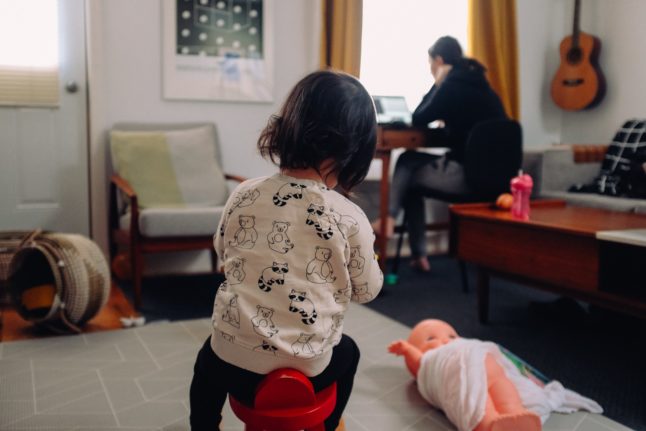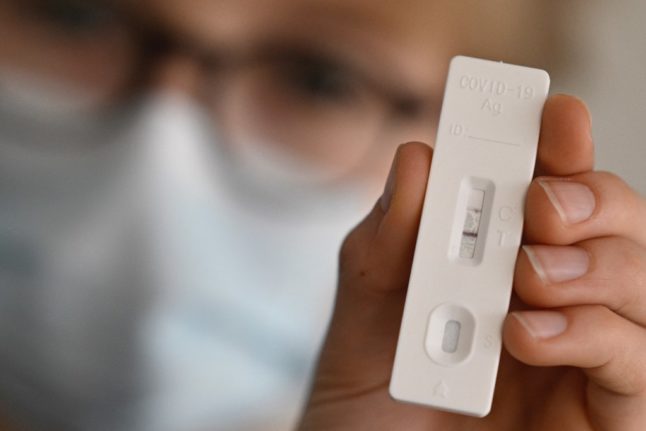With record numbers of new Covid cases, it will be challenging to find someone who is not infected or knows someone who tested positive. Currently, one in every 20 Austrians has the virus, and more than 31,000 new infections were registered on Monday, March 21st.
Here is what you need to know if you or a close contact of yours tests positive for Covid-19.
Firstly, if you only suspect you might have Covid due to symptoms or after being in contact with someone who tested positive, you should call the health line on number 1450. If they classify you as a suspected case, you will be referred to one of the specific test facilities for these cases, or someone will be sent to your home for a PCR test.
The same procedure is valid if you tested positive after a self-antigen test. It is worth noting that the 1450 line works 24/7. Still, there have been different reports from people who don’t speak German regarding responses (or lack of) in other languages, including English.
While you are a suspected case, after a positive antigen or after 1450 classified you as one, you should wait for the results of the PCR test and not leave your home in the meantime. Inform your GP and your employer that you are a suspected case.
READ ALSO: EXPLAINED: What are Austria’s current Covid rules?
If you live in close contact with a suspected case but have not tested positive or been assigned a suspected case status by the authorities yourself, then you don’t need to follow home quarantine.
The PCR test is positive: what now?
If your PCR results come back as positive, you should receive an email or call from the contact tracing authorities – we’ve received reports that this does not always happen, though.
Nevertheless, you need to stay at home quarantined for 10 days. The quarantine can be ended automatically after five days if a PCR test comes back negative or with a CT value above 30 if you don’t have any symptoms for at least 48h.
How should I behave during home quarantine?
If you test positive, you must stay at home and reduce social contacts to a minimum. In addition, you are not allowed to leave your apartment or receive visits, with the exception of medical home visits.
If you live with other people, reduce contact as best as possible: wear FFP2 masks, keep a minimum distance, sleep in separate rooms, do not take meals together, thoroughly and adequately ventilate all rooms after being in them.
Other people should wait at least 20 minutes before using the rooms you were recently in.
You are not allowed to leave your home for any other reason than health and safety emergencies, meaning you cannot leave even to take your dog out or buy groceries. However, there are support systems in place if you need help taking care of other people or animals during this period.
You can contact care service on 01 90 6 40.
What if I am a close contact of someone who tested positive?
The rules for close contact persons depend on whether they are fully vaccinated or not.
Fully vaccinated people (with the three doses or two doses and recovered) no longer need to quarantine. This is also valid for children with two doses of the Covid-19 vaccine, if the people involved were wearing an FFP2 mask during contact, or if the person has recently recovered from a Covid-19 infection in the last three months.
READ ALSO: Austria brings back mandatory FFP2 face masks indoors as Covid cases soar
Unvaccinated people were recently impacted by the new quarantine rules for close contacts that allow them to go to work and shopping but not visit gastronomy (cafes, bars and restaurants), fitness centres, or attend events.
There are different recommendations for health and nursing staff as well as in educational institutions.
Useful vocabulary
Absonderungsbescheid: A segregation notice obliges a person to isolate himself from other people as much as possible. This is often referred to as quarantine.
Kontaktpersonen: Contact persons are persons who have been in contact (shake hands, conversation,…) with a person who tested positive.
Ansteckung: Infection.
Verdachtsfall: Suspected case.
Testergebnis: Test result.



 Please whitelist us to continue reading.
Please whitelist us to continue reading.
Member comments